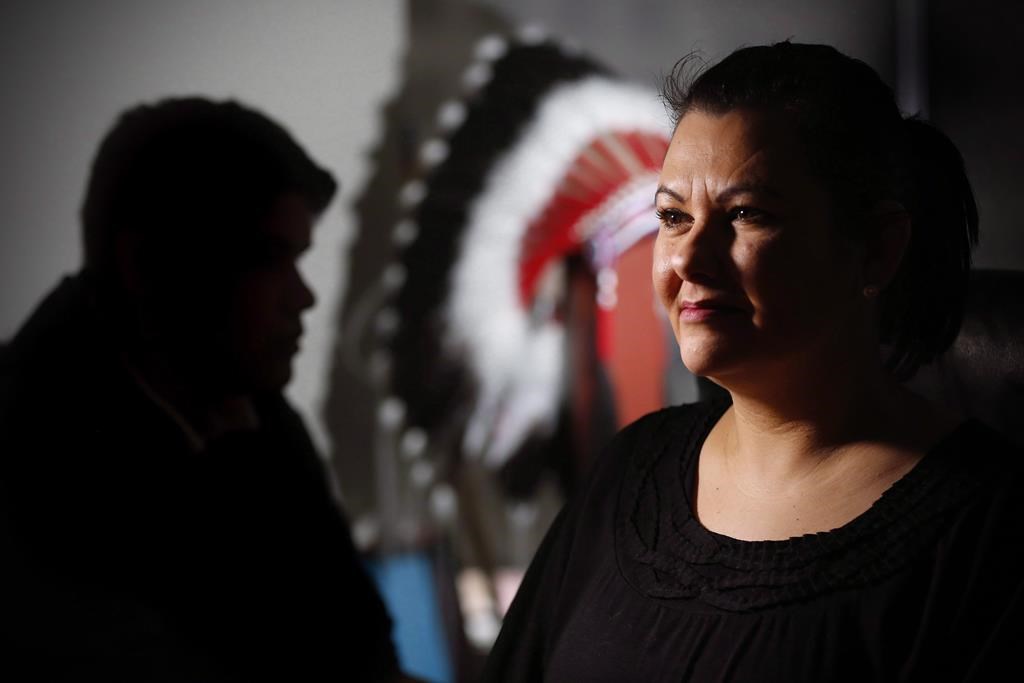A Manitoba First Nations children’s advocate says the child-welfare system is designed to keep Indigenous families at a disadvantage.

Cora Morgan with the Assembly of Manitoba Chiefs told the national inquiry into missing and murdered Indigenous women that the system is set up to apprehend children, not to support families.
The inquiry is holding hearings in Winnipeg this week and is expected to focus on child welfare.
Morgan says violence against Indigenous women can be linked to child welfare because it not only removes them from their families, but also takes away their identity and self-worth.

Get daily National news
She says the system “just eats up our children to the point where they lose their value for life.”
Morgan hopes her words can create change.
“My hope is that I was able to take what I’ve heard from the last three years and all the families that I’ve met with..that I was able to take their message and bring it here and adequately convey the suffering we see every day.”
Manitoba has the highest per-capita rate of children in care and almost 90 per cent are Indigenous.
“Questions unanswered”
Two years after the inquiry was launched in September 2016, the hearings continue. The initial final report was to be submitted on November 1 this year.
But delays, complaints, and staff turnover forced the inquiry commissioners to ask for more time.
They were hoping for an extension of two more years but instead, the federal government gave them six months, which is not nearly enough time according to Qajaq Robinson, one of the commissioners.
“It was fundamental to have more time from people who wanted to be heard, but to dig in these issues at a more regional and local level,” Robinson said.
“It unfortunately means it’s going to be left with questions unanswered.”
READ MORE: Commissioners slam decision to grant shortened extension
The commission plans to finish all their research and witness testimony by December before the final report is submitted on April 30.
-with files from Kevin Hirschfield







Comments
Want to discuss? Please read our Commenting Policy first.